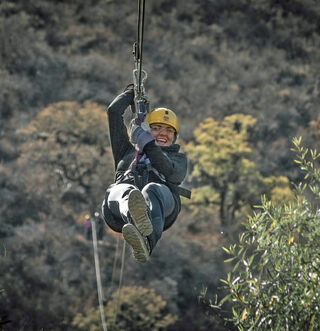Relationships
COVID Vaccination and Lingering Intimacy Anxiety
Fun with the one you love can help you rejoin the world.
Posted May 18, 2021 Reviewed by Jessica Schrader
Key points
- Vaccination may not make you feel "free at last."
- Anxiety about being near others after the pandemic can be crippling.
- Feeling safe is a fundamental human need.
- Let the one you trust the most help you step away from fear and toward pleasure.
The moment I held my high school diploma, time stopped for me. It had been years since Dr. Martin Luther King, Jr. gave his "I Have a Dream" speech in 1963 on the steps of the Lincoln Memorial, but some version of the words at the end of the speech were in my head: “Free at last. Thank God almighty, we are free at last.”
My brain flashed to those words again after my second COVID shot. And then the flash died.
Like the aftermath of graduating from high school, the weeks after the vaccination reminded me that my performance anxiety had not ended. The next steps were all uphill. I had to perform well or I would hurt my chances of winning.
Winning. Yes, that’s what I like to do. I entered college wanting to win athletic and academic prizes and be a dancing queen on weekends.
Winning. Yes, that’s what I still like to do—but it’s 50 years later and “winning” now sounded like “survival” to me. Was I doing everything that was expected of me to keep myself and other people safe? Why did I still feel entrenched in fear? When would I be free at last?
Add to that the sense of betrayal I felt—but from whom or what? Government officials who “didn’t do enough” to ensure containment of the virus? My immune system that would respond to coronavirus the way Superman fell victim to kryptonite? Strange people who didn’t wash their hands?
I turned to the writing of one of my Psychology Today blog colleagues for insights on this feeling that my trust with, well, the world had suffered a blow. Dr. Tim Cole had said in an April 14, 2017 post:
When trust is broken it does real damage to a relationship and one’s sense of security. Depending on the severity of the betrayal, your relationship is probably no longer a source of support, love, and comfort, but rather a source of tension, uncertainty, and concern.
He nailed it. A sense of security—feeling safe—is a fundamental human need. The “severity of the betrayal” involved a potentially life-and-death battle with a virus. The relationship that was no longer “a source of support, love, and comfort” was my relationship with anyone who didn’t live with me. In short, my problem was my relationship with nearly everyone except my partner Jim.
Something had to happen. I needed to find my backbone, optimism, and commitment to pleasure and trust.
I needed to have confidence I was winning.
Jim understood my doubts and fears, but he’d heard enough of my expressing them at every meal. He challenged me to pack my bags and rejoin the world. Both of us had benefitted from an aggressive vaccination program in our state so we had been shot twice and were ready to travel—cautiously.
I have a tendency to hyperventilate in the privacy of my bathroom and appear calm when I leave it. That’s how I responded every day in the week leading up to our departure.
Packing for this four-day trip would have been one of those times when a piece of me yearned for a force majeure incident preventing us from leaving the house: a cataclysmic weather event, alien invasion, or the apocalypse. None happened, and so I packed for a short trip that would involve outdoor and indoor adventures.
My mental-health footwear was the first set of essentials in the suitcase—running shoes, slip-ons, and a pair of Sam Edelman stilettos. That says a lot about the way I cope: prepared to run, willing to lounge, and hoping to strut.

Jim had booked us for a zipline course on our first full day of the mini-vacation. This could not have been a more effective invitation to join the human race. When you are sliding about 40 mph on a cable over a long 510’ height over trees and rock, you either commit to pleasure or you commit to fear.
Pleasure won.
After that zipline course, the longest section of which was an 1800’ stretch of screaming joy, I was ready to go back to our hotel room and take a bubble bath. With Jim. And then to have a sensuous seafood dinner. And then to walk boldly with Jim around a lake with swans and ducks that splashed and—according to my anthropomorphizing—played.
The words of MLK came back to me: “Free at last. Thank God almighty, we are free at last.”
References
Cole, Tim (April 14, 2017). "How to Rebuild Trust When a Betrayal Comes to Light." https://www.psychologytoday.com/us/blog/intimate-portrait/201704/how-re…




